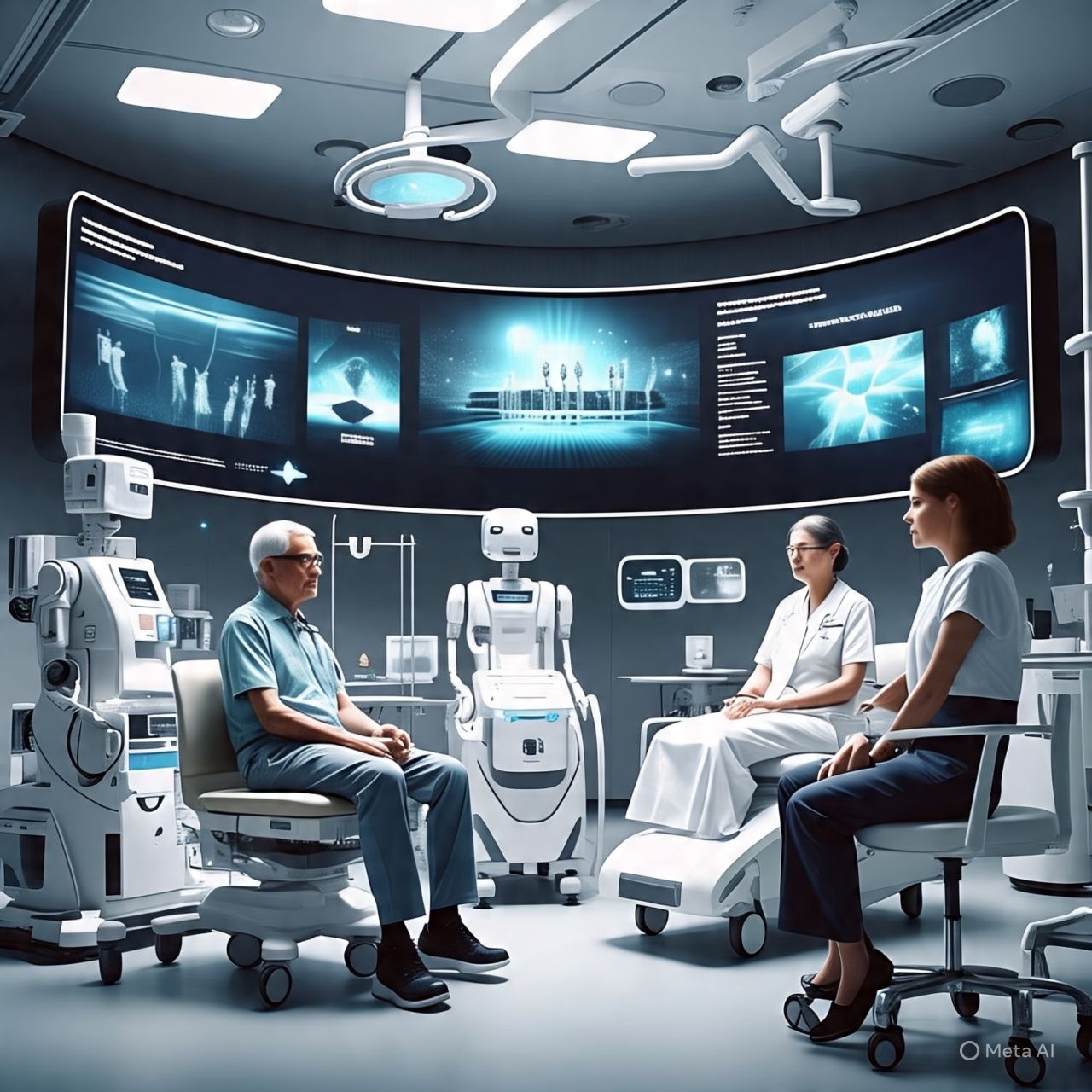Artificial Intelligence (AI) is revolutionizing healthcare, offering smarter diagnostics, personalized treatments, and advanced monitoring tools for patients of all ages. From wearable gadgets to AI-powered diagnostic tools, the integration of technology in medicine is enhancing patient care, improving accuracy, and making healthcare more accessible.
In this article, we’ll explore the latest AI trends and gadgets shaping healthcare for children, adults, and seniors—regardless of gender.
- AI-Powered Diagnostics: Faster and More Accurate Detection
AI-driven diagnostic tools are helping doctors detect diseases early with higher precision. Some key advancements include:
Cancer Detection: AI algorithms analyze medical imaging (X-rays, MRIs, CT scans) to identify tumors at earlier stages than traditional methods.
Diabetic Retinopathy Screening: AI tools like Google’s DeepMind can detect eye diseases in diabetic patients through retinal scans.
Heart Disease Prediction: AI analyzes ECG and lifestyle data to predict cardiac risks before symptoms appear.
- Wearable Health Tech: Real-Time Monitoring for All Ages
Smart wearables are no longer just for fitness enthusiasts—they’re lifesaving tools for all age groups:
For Kids & Teens
Smartwatches with Fall Detection: Devices like the Apple Watch can alert parents if a child falls or has an abnormal heart rate.
Asthma Monitoring Wearables: Sensors track breathing patterns and environmental triggers to prevent asthma attacks.
For Adults
Blood Pressure & ECG Monitors: Devices like Omron’s smart blood pressure monitors sync with apps to track cardiovascular health.
Fertility & Women’s Health Trackers: AI-powered apps (e.g., Femtech devices like Ava Bracelet) monitor ovulation and reproductive health.
For Seniors
Fall Detection & Emergency Alerts: Wearables like the Philips Lifeline send alerts to emergency services if a senior falls.
AI-Powered Hearing Aids: Brands like Whisper use AI to adjust sound in real time based on the user’s environment.
- Virtual Health Assistants & Chatbots
AI chatbots (like Ada Health and Buoy) provide instant symptom analysis and medical advice, reducing unnecessary hospital visits. These tools are especially helpful for:
Parents checking symptoms for children.
Busy professionals seeking quick medical guidance.
Elderly patients who need medication reminders.
- Robotic Surgery & Precision Medicine
AI-assisted robotic surgery (e.g., da Vinci Surgical System) allows for minimally invasive procedures with faster recovery times. Additionally, AI helps in:
Personalized treatment plans based on genetic data.
Drug discovery acceleration, leading to faster development of life-saving medications.
- Mental Health Support via AI
AI is breaking barriers in mental health care with:
Therapy Chatbots (Woebot, Wysa): Provide CBT-based support for anxiety and depression.
Mood-Tracking Apps: Monitor stress levels using voice and facial recognition.
The Future of AI in Healthcare
As AI evolves, we can expect:
More affordable and accessible healthcare in remote areas via telemedicine.
Early disease prediction using AI and big data analytics.
AI-assisted elderly care robots for companionship and health monitoring.
Final Thoughts
AI in healthcare is not just a trend—it’s a transformative force benefiting every age group and gender. From wearable gadgets to advanced diagnostics, AI empowers individuals to take control of their health while assisting doctors in delivering better care.
Stay updated with the latest health tech innovations by following our website!

Leave a Reply